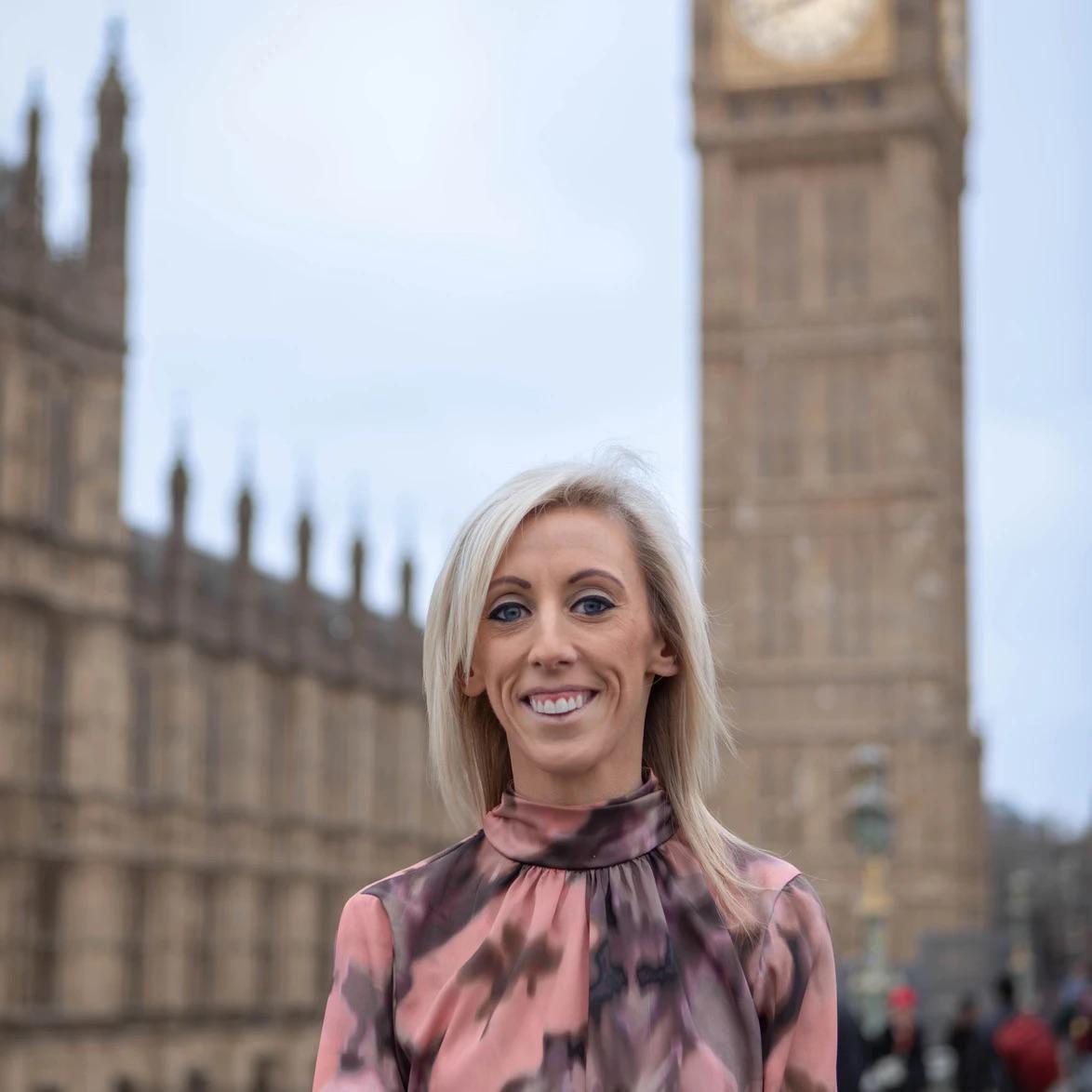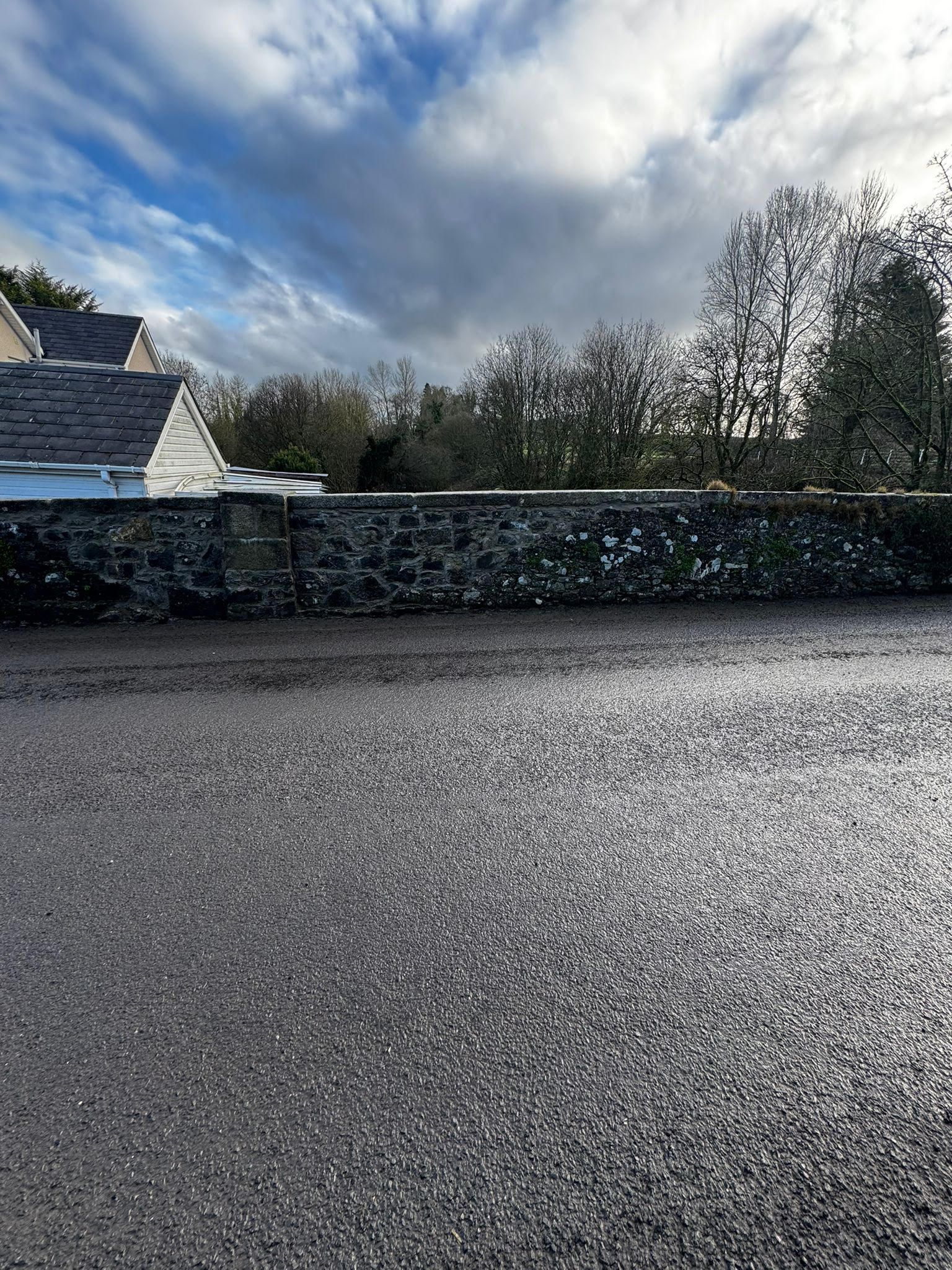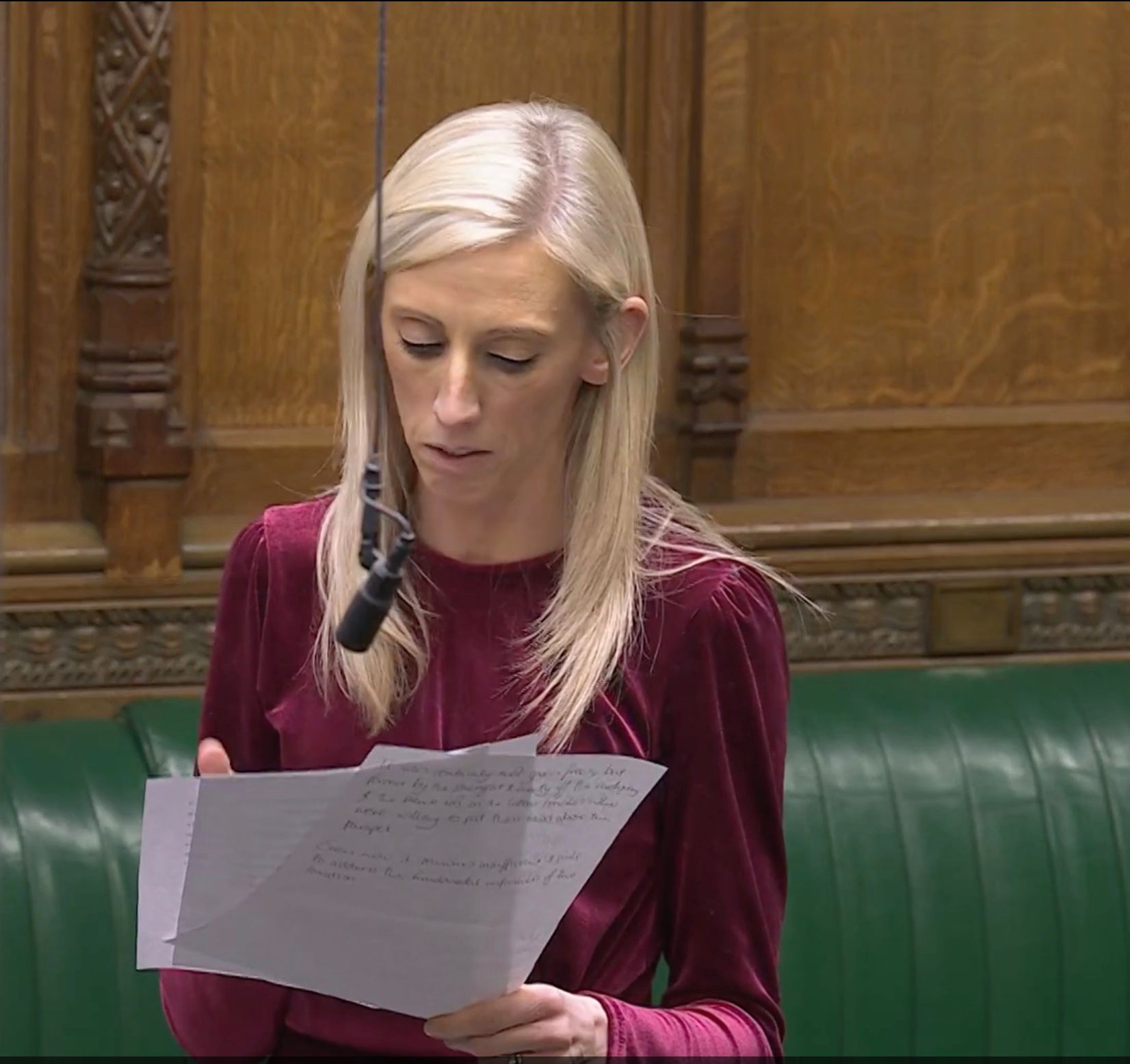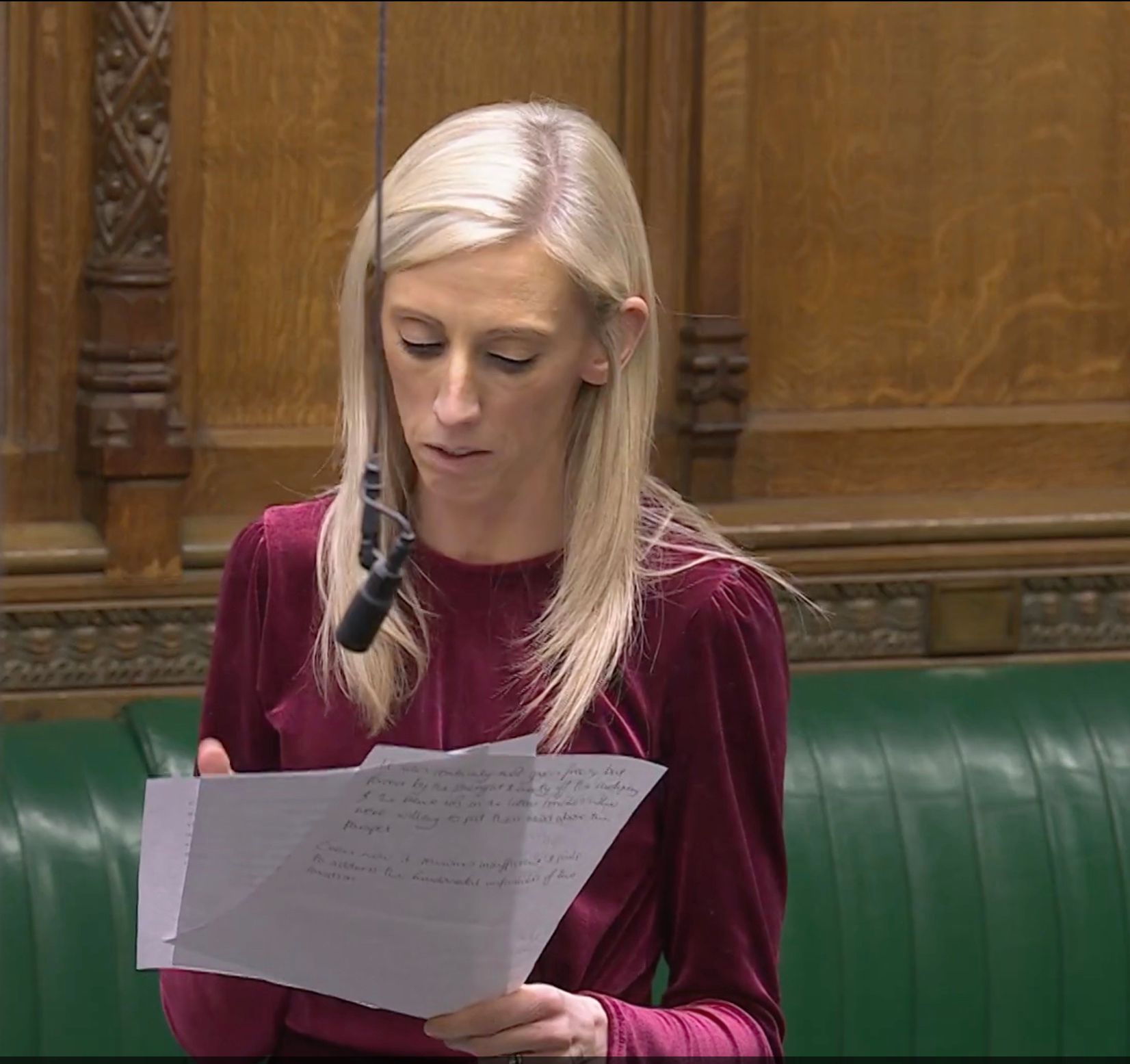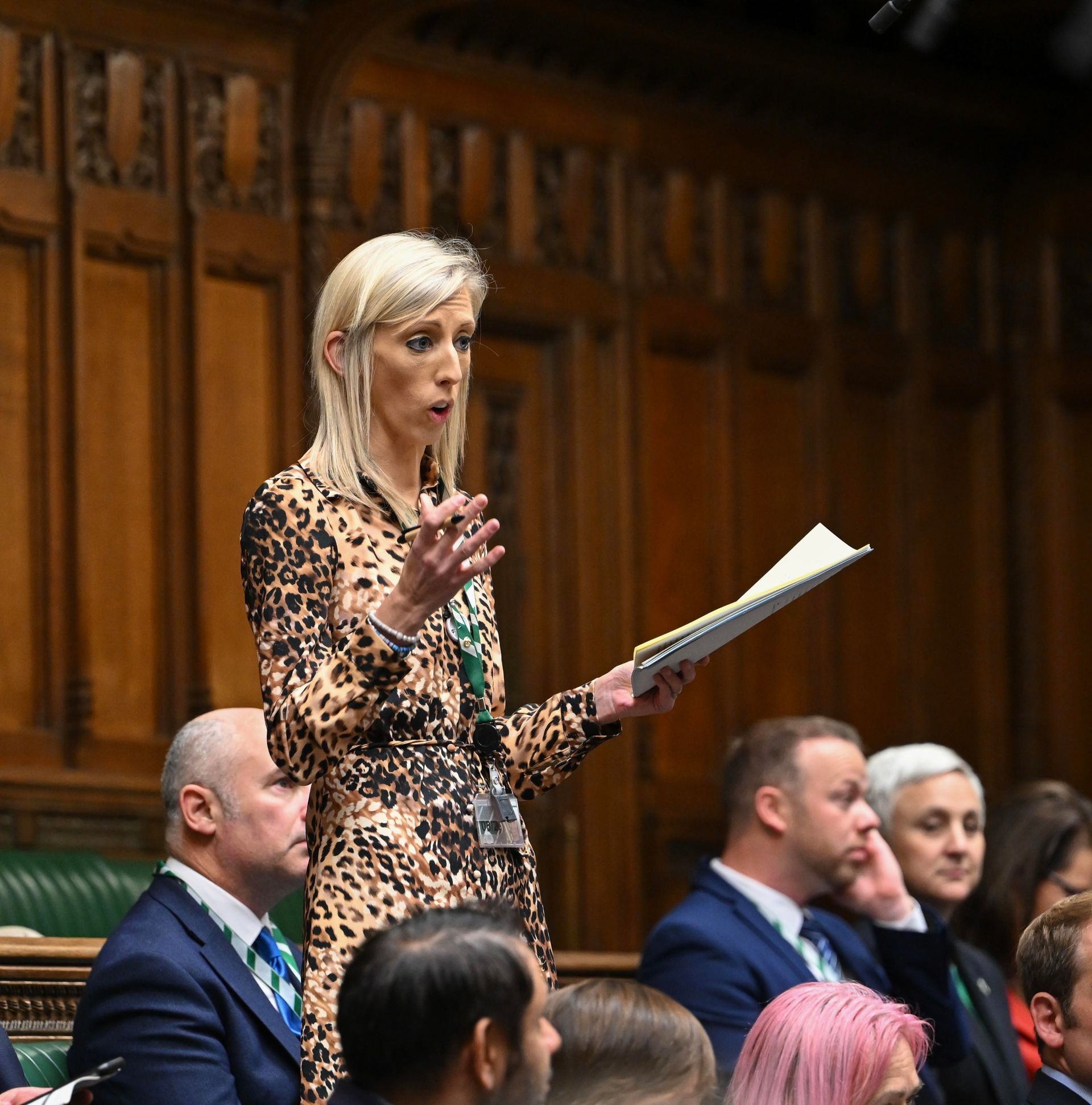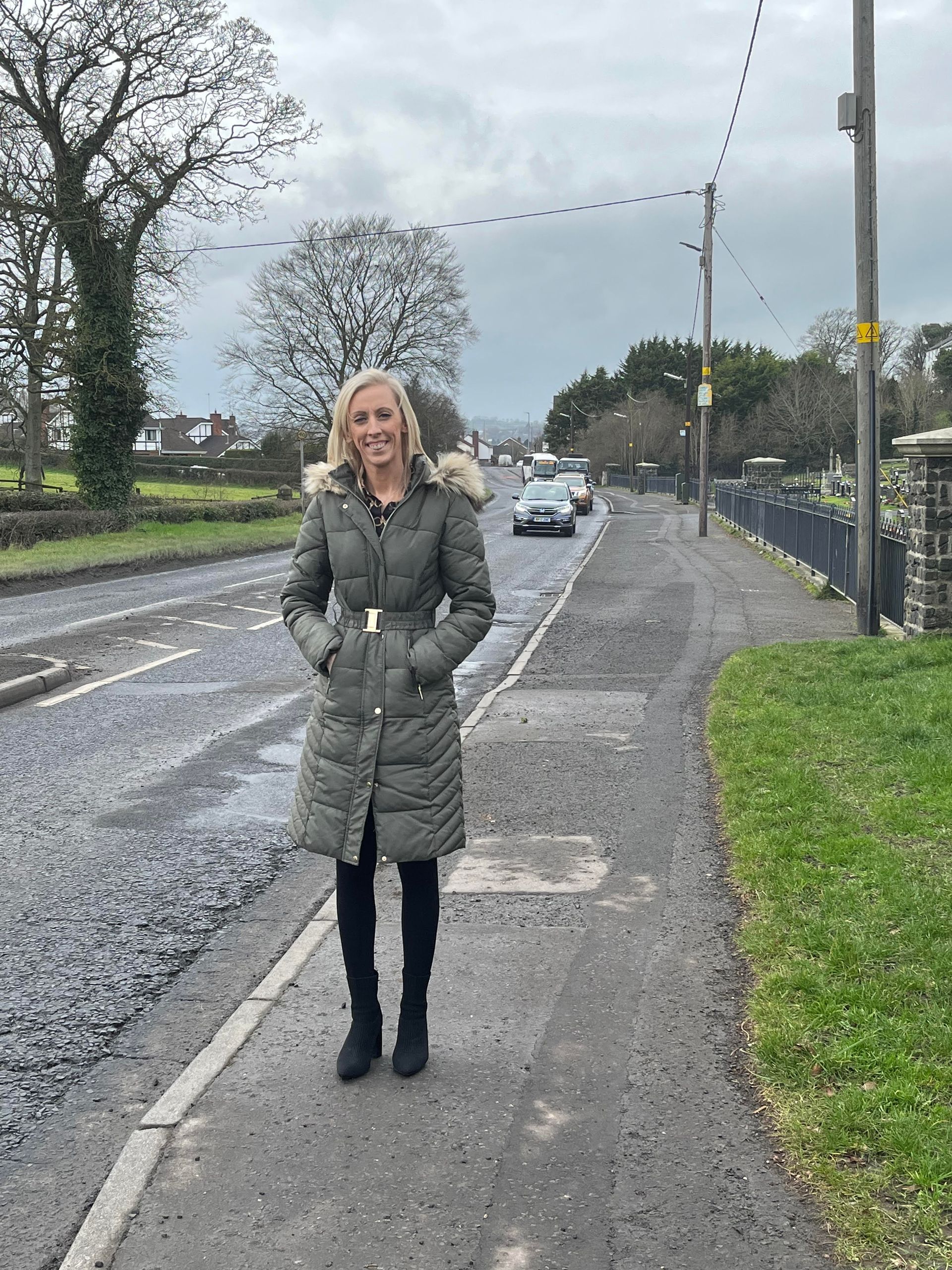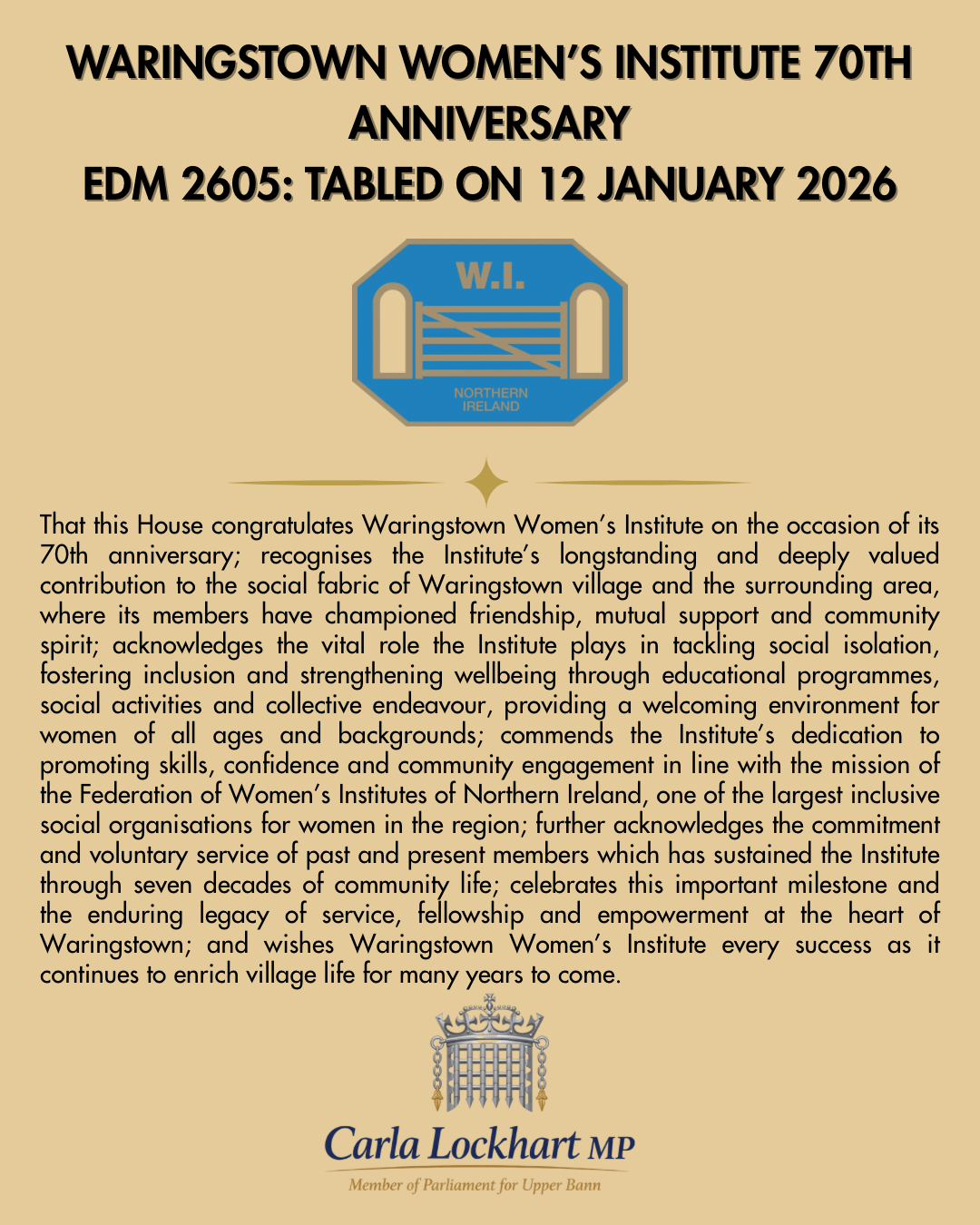Lockhart voices concern as NI’s vet meds grace period beckons
DUP Agriculture spokesperson Carla Lockhart MP has expressed serious concerns about the future availability of veterinary medicines in Northern Ireland and continues to push the UK government to urgently address a number of issues caused by the post-Brexit Windsor Framework.

The MP said: “The clock has been ticking for some time, but we are still waiting on the UK government to stand up for the interests of animal health and welfare in Northern Ireland. Instead, the Labour Party has decided to subject the supply of veterinary medicines from Great Britain to Northern Ireland, to EU law.
“It is disgraceful that the Secretary of State has chosen to prioritise placating the EU, over protecting the interests of animals, vets, farmers and province’s wider agri-food sector.
“Under the terms of the Windsor Framework, veterinary medicines and vaccines must have separate authorisations for GB and NI, a rule that places significant regulatory and financial burden on manufacturers and suppliers.”
Incoming changes set to kick-in on 1st January 2026 will see the withdrawal of certain veterinary medicines and a reduction of up to 40% in medicine pack sizes.
As an appointee of Westminster’s Veterinary Medicines Working Group, Carla Lockhart MP has been bound by confidentiality clauses, but has been consistently critical of this deeply flawed process, and the government’s direction of travel.
Ms Lockhart added: “We are still none the wiser as to how many and what types of products will be affected. The government is playing down the situation, but veterinary pharmaceutical industry stakeholders, including the Animal Health Distribution Association (AHDA) and British Veterinary Association (BVA), have issued stark warnings. It’s hard to have confidence when there is no transparency.
“The Labour government has adopted a ‘wait and see’ attitude, but in terms of medicine supplies and animal welfare that is not acceptable. We need action now, not when supplies are waning and animal health is in jeopardy.”
The MP has described a veterinary blockade imposed on Northern Ireland by stealth as unacceptable. She said: “The potential removal of such a large proportion of veterinary medicines from the Northern Ireland market poses a significant risk to animal health and the sustainability of our rural economy. Whilst the government is saying it will be a handful of vet meds, industry continues to indicate otherwise.
“Vets and farmers in my Upper Bann constituency and across Northern Ireland are deeply concerned about the reality of the situation from January 2026 onwards. We are not talking about hypothetical impacts—these are real consequences that will hit livestock enterprises, food supply chains and animal welfare.”
“It is ridiculous that Northern Ireland continues to be subjected to regulatory divergence from the rest of the United Kingdom. This is yet another example of how the Windsor Framework fails to deliver parity for our agri-food sector and wider economy.
“More than enough time has been wasted. The government must act swiftly to ensure a workable, UK-wide solution for the authorisation and distribution of veterinary medicines. The threat of these rules has already been enough to prompt some firms into potentially discontinuing supplies to Northern Ireland. The situation will deteriorate even further once the grace period ends.”
Concluding, Ms Lockhart said: “The government is trying to encourage veterinary practices and agricultural merchants to stockpile a supply of ‘threatened’ medicines, including vital antibiotics and vaccines for farm, equine and companion animals. This isn’t a viable option due to cashflow, storage capacity and product expiry dates.
“Predictions are that small to medium-sized herd and flock owners will be hardest hit, as they will be forced to buy vital products in larger pack sizes, resulting in more expense and wastage due to shelf life and drug viability once opened.
“Government must not allow Northern Ireland’s farmers and vets to be left behind. This is not a time for further delay or complacency. A solution must be found that puts the health and welfare of animals, and the future of our rural economy first.”
